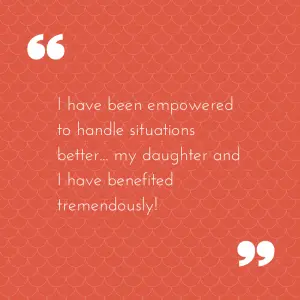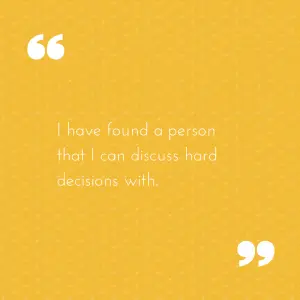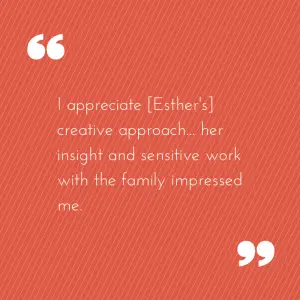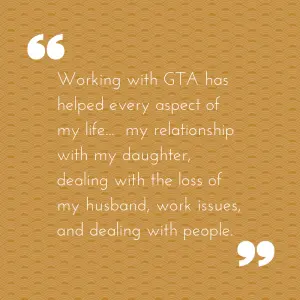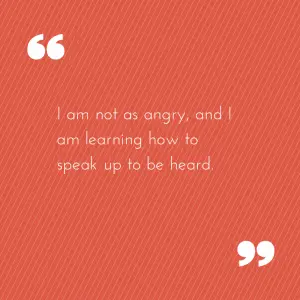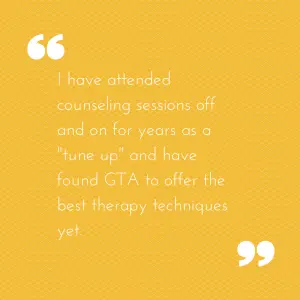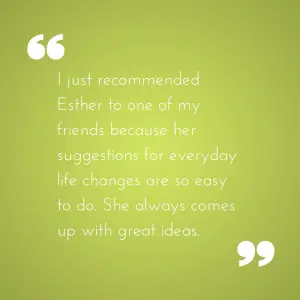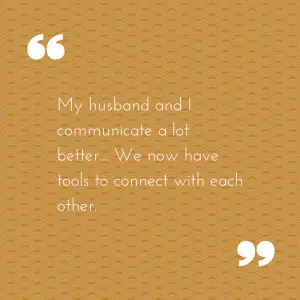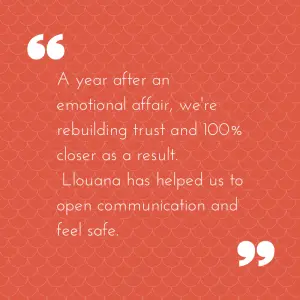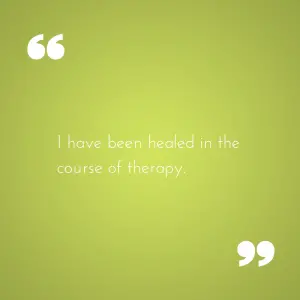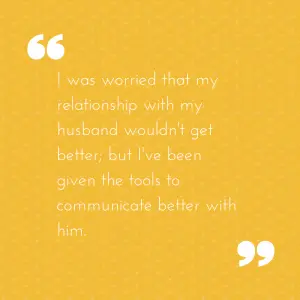If you are a regular reader of this blog then you know that we are passionate about compassion, particularly self-compassion as a way to strengthen relationships and lead a more fulfilling life. It is my belief that compassion is the core of truly loving ourselves and others. But what do you do if you are struggling to be compassionate? Maybe you grew up in a family that was not emotionally available or accepting, or you’ve had relationships that were abusive and damaged your self image, or maybe you don’t know why but there is a voice inside that says you are not good enough or worthy of unconditional love. Far too often we attempt to fill this void with things or other people with no success. What many of us need is a place to understand what that emptiness is about and then a nurturing, compassionate support system to help you begin to heal it. That is what therapy can do. A good therapist can offer you a safe haven in your life to take stock of your flaws and your emotional wounds in an effort to move on. As we often say at Group Therapy Associates, “everyone can use a little therapy” but maybe you aren’t convinced that your problems are “big enough” or “worthy” of the investment or that therapy can even help you. In those times it is useful to devote some time to evaluate where you are in all the areas of your life before you decide what to do next. Paul Brunson of OneDegreeFrom.Me offers 3 tips you can do on your own to begin the process of loving yourself more fully. Check out his vlog below and then tune in tomorrow afternoon to Everyone Could Use a Little Therapy, our BlogTalkRadio show tomorrow at 4:30 pm EST to hear Paul live chatting about dating, relationships, and learning love yourself and your partner. Don’t forget to call in live with your questions to 917-889-8994 or email them before the show to [email protected].
Thanks for Tuning In… Teen Resources
Hi everyone! Thanks so much for tuning into our first episode of Everyone Could Use a Little Therapy on BlogTalkRadio.com this afternoon. Llouana and I had a great time chatting about the joys and hurdles of adolescence. If you were not able to catch us live, you can still listen to the archived recording online. Visit our homepage or our Blog Talk Radio show page to access the player.
We can’t wait to get back on the air July 13 when we will talk with Paul Brunson from One Degree From Me about dating, love, and keeping the passion alive in your relationships. Don’t miss what is sure to be a fantastic show.
On today’s show we mentioned a number of different resources and as promised, they are listed below.
Worried About a Moody Teenager? (This is an excellent article in the Wall Street Journal for every parent, caregiver, and teenager to read on identifying the red flags of mental illness in adolescence.)
Motivation and Flow- The Teenage Edition
Be sure to check out our post of web resources for teens. It includes site with advice and information on everything from puberty to nutrition to sex to friendship. A great to list for teens and parents alike.
If you are in the Northern Virginia/Washington DC area, please call our offices if you are looking for a therapist. Even if our offices are not convenient, we are always happy to refer local inquiries to many of our excellent colleagues in the area. If you are outside of our local region, check out some of the online therapy directories listed below as a starting point for finding the right professional for you.
Good Therapy
TherapistLocator
ProConnect
Unconditional love is all about the rules
 It might sound crazy, but having rules just might be the most important step toward developing an unconditional love for your spouse.
It might sound crazy, but having rules just might be the most important step toward developing an unconditional love for your spouse.
In the early stages of marriage many couples would say that their love for one another is unconditional. There is much talk of loving each other regardless of flaws and finding the “perfect partner.” I know that some experts may disagree with the idea of unconditional love between partners—citing issues of co-dependency and enmeshment—but in my view, a great marriage has an element of love and affection for one another that supersedes any faults or flaws. Call me a hopeless romantic, but I believe that love, even between spouses, can and should be unconditional.
Unconditional love is the idea that our affection for each other is not based on a certain set of behaviors or characteristics. It’s the idea that you love your wife because of who she is not only if she stays a size six or cooks dinner every night. It’s the kind of love that engaged and newlywed couples believe in. Unconditional love is the kind of love that you have for a person not in spite of but because of their flaws. Your love is all that makes them who they are and wouldn’t have it any other way. It’s blissful and wonderful until real life starts to intrude.
Rather than talk about the way they want to treat each other and the set ground rules for managing conflict, couples usually start out too drunk on love and lust to pay much attention to the logistics of sharing a life. Unfortunately, in time we all sober up and suddenly realize that we don’t necessarily like everything that’s been going on. Suddenly what was cute or quirky is irritating. Your wife’s ambition, which was once sexy and powerful seems arrogant and self-serving. Or your husband’s attention to detail may suddenly seem like nit-picking and controlling. This is the moment where couples start to wonder what went wrong. How could someone who loves us unconditionally find fault with who we are? The problem must be with love… right? Maybe not.
The common assumption is that the love has changed, that our spouse no longer loves us unconditionally, but that’s usually not the case. The truth is that most couples I meet at this point are just as in love with each other as ever. The problem is not that their love has changed, but that the rules of the relationship were never established or are in need of an update. You see, while love can be unconditional, healthy relationships need rules.
I know, this seems counter-intuitive to that stars-in-your-eyes, heart-pounding, life-changing love that once dictated your behavior. The fact is that relationships need boundaries in order to sustain the stress and challenges of life. I often compare the need for boundaries or relationship rules with parenting. In general, parents love their children unconditionally, but in order to raise children there must be rules. This is how we teach them to get along with others and learn to understand their place in the world. Rules or boundaries allow a child (or a spouse) to clearly understand how to have positive interactions with the people they love and how to effectively express their needs. The happiest, most secure children are those who live with parents that are comfortable and clear in expressing their love and expectations. Intimate relationships, like marriage, need the same guidance to create a secure and lasting bond.
Boundaries are simply rules of engagement, a set of guides for how we interact and what we need from other people. Boundaries allow each person to maintain their individuality and grow with each other rather than compete for control or autonomy. Boundaries also protect the commitment of a marriage and foster long-lasting, healthy emotional connections. It is healthy boundaries with the outside world that help some couples remain faithful while others may struggle with issues of infidelity and distrust. Boundaries also protect individuals in the relationship from abuse and exploitation. While you may love your spouse without conditions that does not mean you ought to live with them in an unsafe or emotionally detrimental situation. Boundaries allow us to love freely and deeply while establishing a clear understanding of what is acceptable.
Your Path to Unconditional Love
So how do we keep our deep and unconditional love while establishing clear and healthy rules for our relationships? Open communication and honest personal reflection are key. Whether it is negotiating how you will manage your finances or understanding how and when you need to be comforted and encouraged, establishing relationship rules requires both partners to be open and honest with themselves and each other. These moments of honesty and clarity are not always going to come in the form of civil conversations or carefully negotiated lists. Sometimes, these moments are unexpected and the things you learn are not always what you want to hear. If you can take the risk to be honest and vulnerable in these times, you may find the key to move your marriage forward in a positive way.
A favorite marriage moment for me in which my husband and I established rules around maintaining our home life came when, in the midst of an argument, I accused him of not being as much of a “modern” man as he claimed. In a moment of frustration I told him that he wanted an old-school wife that would stay home and cook and clean for him, not an equal partner as he always proclaimed. I said he was a chauvinist and truly expected him to be offended and defend his prior commitment to having a modern marriage where we shared everything 50/50. Instead, I got a moment of honest communication. Much to my surprise I was right and had just put words to what he had been struggling with for some months. He suddenly realized that he needed to be honest with himself and me about what he really wanted in our marriage.
It turns out that what he really wanted was for me to play a more “traditional” role at home; not exactly a role that fit with the very independent, modern feminist woman he married. That doesn’t mean that I quit my job and stayed home ironing shirts all day to fulfill his desire. Nor did I pack my bags and leave to find someone who wanted a wife that would rather pursue graduate school and a career than mop floors and change diapers. Instead, we finally had an honest platform from which to negotiate our own rules about how we would manage our domestic and family responsibilities.
Interestingly enough, we both learned more about who we really were in the process. It turns out that I am more traditional than I thought and thoroughly enjoyed staying at home with our children, while going to school and pursuing part-time ventures. He found that he was, in fact, a lot more like the guy he claimed to be when it came to diaper changing and taking care of children. Thankfully we learned these lessons together and were able to be supportive of each other’s goals and needs. No matter where you are in your relationship, the unconditional love can last a lifetime. All you have do is make it part of the rules.
Everyone Could Use a Little Therapy… BlogTalkRadio Show This Week
 We are so excited to announce this week’s Everyone Could Use a Little Therapy show on BlogTalkRadio.com – an internet radio site dedicated to talk radio. With the school year behind us, summer means weeks of possibility. Tune in and chat with our resident “teen expert”, Llouana Harper, as we discover the challenges and joys of summertime for adolescents. Whether its dealing with nerves about starting middle or high school, adjusting to life with parents after the first year of college, or just wondering what to do with all those long, lazy days- we’ve got answers to all your important questions. And some tips on how to keep the peace between parents and teens while still having some fun. Can’t wait to hear from you.
We are so excited to announce this week’s Everyone Could Use a Little Therapy show on BlogTalkRadio.com – an internet radio site dedicated to talk radio. With the school year behind us, summer means weeks of possibility. Tune in and chat with our resident “teen expert”, Llouana Harper, as we discover the challenges and joys of summertime for adolescents. Whether its dealing with nerves about starting middle or high school, adjusting to life with parents after the first year of college, or just wondering what to do with all those long, lazy days- we’ve got answers to all your important questions. And some tips on how to keep the peace between parents and teens while still having some fun. Can’t wait to hear from you.
The show starts 12:00pm on Thursday, July 1. You can listen live right here in this post (see player below), on the Group Therapy Associates homepage, or on the Blog Talk Radio show page. You can call us at 917-889-8994 and ask your questions live on air, submit them via chat on Blog Talk Radio (you’ll need an account to do that, but don’t worry its free and easy to get), or even email them ahead of time to [email protected]. We can’t wait to hear from you! And if you can’t listen live, don’t worry. We will have all the shows archived and podcast recordings available of every show.
![]() Want to check out previous shows?? Click the player above to listen to our most recent archive now. Then come back Thursday at noon to catch this week’s show live!
Want to check out previous shows?? Click the player above to listen to our most recent archive now. Then come back Thursday at noon to catch this week’s show live!
Why do so many couples divorce? Maybe they just don't know how to be married… from Washington Post

I read an interesting article today on WashingtonPost.com by Ellen McCarth; about the growth of marriage education in this country. There is much to be discussed about the effectiveness and role of marriage education, couples therapy, relationship coaching, and even couples group therapy in supporting couples but I particularly liked the angle of this article. Ms. McCarthy takes a minute to explore the bigger (more important?)question- are many of marital problems that couples experience really the result of not understanding “how” to be married rather than a problem with “who” you married. As a marriage and family therapist I believe the best answer lies somewhere in the middle.
There is no denying that choosing a spouse who shares your values and life goals is an important part of building a strong marital foundation. But the complex emotional negotiating that is fundamental to living your life with another human being is something that requires skills that many of us have not mastered even after we tie the knot. As a couple you must learn not just how to love and how to love the person you are with. Just as there are many ways that therapists (and coaches and marriage educators) work to support couples, there are many ways to be married. The trick is creating a set of rules that work best for your relationship.
Check out the article and then come back and tell us what you think. Do you agree with Diane Sollee when she says that its more important to learn how to do marriage right than it is to find the “right” person? How have you and your partner learned to be married together?
The Marriage Myth: Why do so many couples divorce? Maybe they just don’t know how to be married..
Thanks for tuning in… and now a few resources
Hi everyone! Thanks so much for tuning into our first episode of Everyone Could Use a Little Therapy on BlogTalkRadio.com this afternoon. Llouana and I had a great time chatting about love and relationships. If you were not able to catch us live, you can still listen to the archived recording online. Visit our homepage or our Blog Talk Radio show page to access the player. We can’t wait to get back on the air June 24 when we will talk about surviving the summer with your teenager!
On today’s show we mentioned a number of different resources and as promised, they are listed below. And if you want to check out the 7 mini-dates we talked about in the final minutes of the show, just check out this article. Read More…

